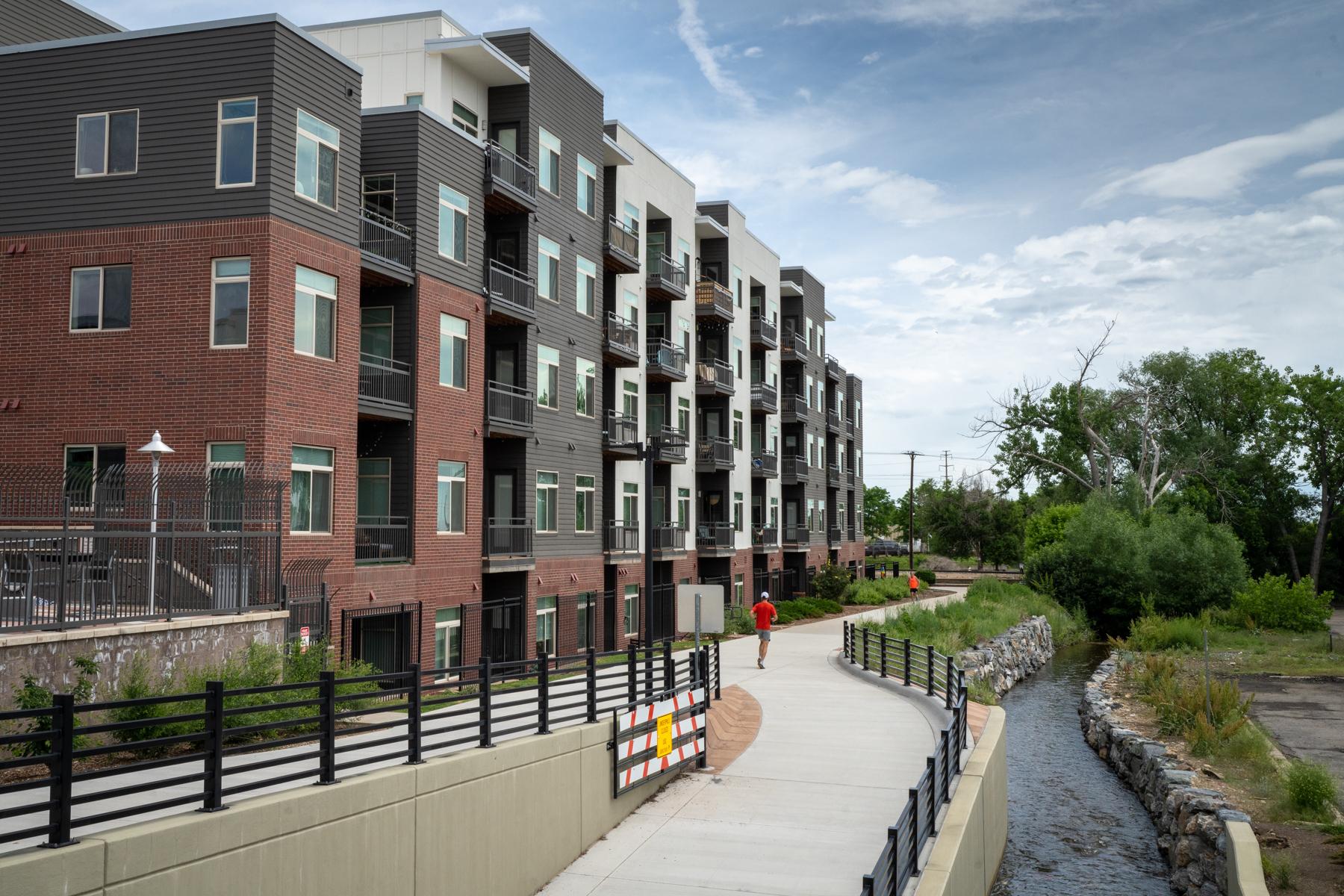
One of this year’s most consequential renter’s rights measures has hit a roadblock in the state Senate, where Democratic leadership is asking for significant changes to what’s known as the “for cause” evictions bill.
The proposal is meant to give renters more power when their lease expires.
Currently, landlords get to decide what happens at the end of most leases. If they want a new tenant, they can simply tell the current tenant it’s time to go.
But the proposed new legislation would require, in many cases, that the landlord offer a “reasonable” extension for the current renter. The change would hand more of the decision-making power to the tenant, and the details about renewals are at the center of Senate President Steve Fenberg’s concerns.
“I fully support the concept of the bill,” Fenberg said. “But I also think that there's probably room to create more flexibility at the end of a lease and on how and when a landlord can choose not to renew the lease.”
The bill has faced delays as the sponsors negotiate for support in the Senate. Last year, a similar bill got caught up in a heated dispute between Democrats that ended with multiple major housing proposals dying in the Senate.
Rep. Javier Mabrey, a sponsor, pointed out that the Colorado Apartment Association has taken a “monitoring” stance on the current bill, a notable position since the CAA often opposes renter protection bills.
“It means we've made a ton of concessions and have watered down this policy,” Mabrey said. He added that the measure has broad support from housing groups.
Fenberg said he wanted to see some specific changes that would give landlords more power to refuse to renew a lease, he said, “whether it's [to change it to] a different type of rental, whether it's using it for their family, whether they just simply don't want to go through the headache of being a landlord anymore.”
The bill already allows for non-renewals in some cases, such as when the landlord wants to demolish or significantly repair the property; take it off the market; or have a family member move in.
Renters could also be refused a renewal if they have created a “nuisance or disturbance,” refused to sign a new lease with “reasonable terms” or have a “history of nonpayment of rent,” though 90 days’ notice would be required. The protections would only apply for tenants of at least one year.
Tenants could still be evicted for lease violations.
In a committee hearing, Angela McCoy said that she and other small landlords were opting out of the market amid rising regulation.
“We just need to tap the brakes and see what has already happened to the Colorado rental market before we move forward with additional legislation that could really exacerbate our housing crisis,” she said.
“Ending the lease on the date it expires is a tool that most landlords rarely, rarely use. But when we have to, it provides a simple way to end our relationship with a bad-actor tenant,” said Aaron Blazis of Premier Real Estate Group, a property manager.
On the other side, Joy Bishop, a retired educator, said that a property manager refused to renew her lease at a low-income senior residence because, she believes, of concerns she had raised about the property.
“The process made me feel unsafe, alone and isolated. It all came to a head when I was notified that my lease would not be renewed and I would be forced out. When I asked why, they told me we don't have to tell you. This was unfair,” said Bishop, a member of the advocacy group United for a New Economy.
Sen. Nick Hinrichsen, a Democratic sponsor, said that similar policies had not caused noticeable effects on rental markets in other states like New Jersey. “There has not been an impact seen on pricing for the rental market. And all of those states and the two dozen municipalities that have continued to have a robust rental market,” he said.
The measure, which passed its Senate committee on a party-line vote, was scheduled for debate on the Senate floor on Friday, but was postponed as the sponsors tried to shore up Democratic support.
“I think that there are ongoing conversations with people who might not understand the extent to which we have compromised, to address concerns,” Mabrey said, “and I think when we get more in depth on those conversations that, you know, Democrats will agree that this is something we should do.”
The measure is currently scheduled for further debate on Monday. It’s also sponsored by Democratic House Majority Leader Monica Duran and Sen. Julie Gonzales.







